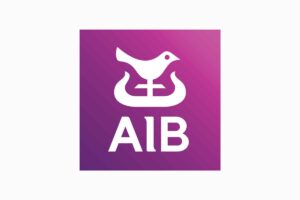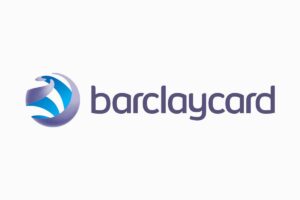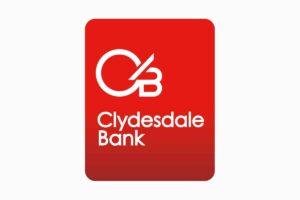If you’re an entrepreneur or business owner, it’s important to stay on top of your finances. One way to do so is with business credit cards — an integral financial tool that can help you manage and track your company expenses in one place.
Whether you are looking for low interest rates or special cashback offers, there are plenty of great benefits associated with having a dedicated business credit card.
Featured pro tools
Best business credit cards UK
| Provider | Credit Card Name | Features/Benefits | Interest Rate | Annual Fee | Maximum Credit Limit |
|---|---|---|---|---|---|
| Allied Irish Bank | Allied Irish Bank Business Card | Affordable credit solutions for SMEs. | 4% | £15 | To be confirmed |
| American Express | American Express Business Card | Premium rewards, high benefits. | 32.6% | £175 | To be confirmed |
| Bank of Scotland | Bank of Scotland Business Card | Flexible credit, online management tools. | 22.4% | £32 | To be confirmed |
| Barclaycard | Barclaycard Business | Cashback on purchases, free supplementary cards. | 21.9% | £0 | To be confirmed |
| Capital On Tap | Capital On Tap Card | High credit limit, no foreign transaction fees. | 15.5% | £0 | To be confirmed |
| Cashplus | Cashplus Business Card | Easy approval, basic card features. | 29.9% | £0 | To be confirmed |
| Clydesdale Bank | Clydesdale Bank Business Card | Competitive rates, dedicated support. | 22.4% | £28 | To be confirmed |
| HSBC | HSBC Business Card | Global acceptance, online expense management. | 22% | £32 | To be confirmed |
| Juni | Juni Card | E-commerce focus, accounting integration. | 0% | £0 | To be confirmed |
| Lloyds Bank | Lloyds Bank Business Card | Designed for SMEs, low fee. | 22.4% | £32 | To be confirmed |
| Metro Bank | Metro Bank Business Card | No fee for European transactions, no annual fee. | 14.9% | £0 | To be confirmed |
| NatWest | NatWest Business Card | Personalized credit limits, online banking. | 24.3% | £30 | To be confirmed |
| Payhawk | Payhawk Card | Advanced expense management, virtual cards. | Varies | £2,388 | To be confirmed |
| Santander | Santander Business Card | Reward points, additional cardholder options. | 23.7% | £30 | To be confirmed |
| Soldo | Soldo Business Card | Prepaid card, expense tracking. | 0% | £6 | To be confirmed |
| Ulster Bank | Ulster Bank Business Card | Flexible repayment options, regional services. | Not advertised | £32 | To be confirmed |
| Wallester | Wallester Business Card | Customised solutions, advanced security. | 0% | £0 | To be confirmed |
Allied Irish Bank business credit card

Allied Irish Bank offers a business credit card that’s ideal for small to medium-sized UK enterprises seeking affordable credit solutions. With competitive rates and a modest annual fee, it’s a practical choice for businesses looking to manage cash flow and track expenses efficiently.
- Interest Rate: 4%
- Annual Fee: £15
- Key Terms: Affordable credit solutions for SMEs, efficient expense management.
- Suitable For: Small to medium-sized enterprises seeking cost-effective credit management.
Read our AIB review or visit the website.
American Express business credit card

American Express is renowned for its premium business credit cards, catering to UK businesses with a penchant for high rewards and extensive benefits. Despite a higher annual fee, the card offers exceptional rewards, wide acceptance, and excellent customer service, ideal for businesses with frequent transactions.
- Interest Rate: 32.6%
- Annual Fee: £175
- Key Terms: Premium rewards, high benefits, ideal for frequent business transactions.
- Suitable For: Businesses with high transaction volumes and those seeking premium rewards.
Read our American Express review or visit the website.
Bank of Scotland business credit card

The Bank of Scotland business credit card is a solid choice for UK companies seeking flexible credit options and online management tools. With a moderate interest rate and annual fee, it’s suitable for businesses looking for a balance between cost and functionality.
- Interest Rate: 22.4%
- Annual Fee: £32
- Key Terms: Flexible credit, online management tools, moderate fees.
- Suitable For: Companies needing flexible credit options and digital management.
Read our Bank of Scotland review or visit the website.
Barclaycard business credit card

Barclaycard presents a compelling no-annual-fee business credit card, perfect for UK startups and SMEs. It offers cashback on purchases and free supplementary cards, making it a cost-effective solution for businesses aiming to minimise expenses while maximising value.
- Interest Rate: 21.9%
- Annual Fee: £0
- Key Terms: Cashback on purchases, free supplementary cards, cost-effective for startups and SMEs.
- Suitable For: Startups and SMEs looking for a budget-friendly option with benefits.
Read our Barclaycard review or visit the website.
Capital On Tap business credit card

Capital On Tap offers a unique business credit card with no annual fee, appealing to UK businesses looking for high credit limits and no foreign transaction fees. It’s an ideal choice for businesses with international dealings and those requiring flexible spending options.
- Interest Rate: 15.5%
- Annual Fee: £0
- Key Terms: High credit limit, no foreign transaction fees, suitable for international businesses.
- Suitable For: Businesses with international dealings requiring high credit limits.
Read our Capital On Tap review or visit the website.
Cashplus business credit card

Cashplus provides a straightforward business credit card, perfect for UK SMEs seeking easy approval and basic card features. With no annual fee and a higher interest rate, it’s tailored for businesses looking for simplicity and immediate credit access.
- Interest Rate: 29.9%
- Annual Fee: £0
- Key Terms: Easy approval, basic card features, ideal for immediate credit access.
- Suitable For: New businesses and those seeking straightforward, easy-to-access credit.
Read our Cashplus review or visit the website.
Clydesdale Bank business credit card

Clydesdale Bank offers a business credit card that combines competitive rates with dedicated support, making it a fitting choice for UK businesses valuing customer service and financial efficiency. With a moderate annual fee, it’s suitable for companies needing a balance of support and value.
- Interest Rate: 22.4%
- Annual Fee: £28
- Key Terms: Competitive rates, dedicated business support, good customer service focus.
- Suitable For: Businesses valuing strong customer support and competitive rates.
Read our Clydesdale Bank review or visit the website.
HSBC business credit card

HSBC‘s business credit card is designed for UK businesses seeking global acceptance and sophisticated online expense management. With a standard annual fee and interest rate, it caters to companies needing a reliable and internationally recognised credit card solution.
- Interest Rate: 22%
- Annual Fee: £32
- Key Terms: Global acceptance, online expense management, reliable for international use.
- Suitable For: Internationally active businesses needing a widely accepted credit card.
Read our HSBC review or visit the website.
Juni prepaid business card

Juni provides a zero-fee, zero-interest prepaid business credit card, particularly beneficial for UK e-commerce businesses. It integrates seamlessly with accounting software, making it an excellent choice for online enterprises prioritising cost efficiency and financial management.
- Interest Rate: 0%
- Annual Fee: £0
- Key Terms: E-commerce focus, accounting integration, cost-efficient for online businesses.
- Suitable For: E-commerce and online businesses looking for integrated financial management.
Read our Juni review or visit the website.
Lloyds Bank business credit card

Lloyds Bank offers a business credit card tailored for SMEs, emphasising low fees and suitability for smaller enterprises. With competitive interest rates and an annual fee, it’s a practical option for UK businesses seeking straightforward, cost-effective credit solutions.
- Interest Rate: 22.4%
- Annual Fee: £32
- Key Terms: Designed for SMEs, low fee, practical for small enterprises.
- Suitable For: Small and medium-sized enterprises seeking straightforward credit solutions.
Read our Lloyds Bank review or visit the website.
Metro Bank business credit card

Metro Bank‘s business credit card stands out for its no-annual-fee policy and free transactions in Europe, making it an attractive option for UK businesses with European dealings. The card’s low interest rate further enhances its appeal to cost-conscious companies.
- Interest Rate: 14.9%
- Annual Fee: £0
- Key Terms: No fee for European transactions, no annual fee, appealing to businesses with European interactions.
- Suitable For: Businesses engaging in transactions across Europe, seeking cost savings.
Read our Metro Bank review or visit the website.
NatWest business credit card

NatWest provides a business credit card with tailored credit limits and comprehensive online banking facilities. With a slightly higher interest rate and annual fee, it’s suitable for UK businesses seeking a personalised credit solution from a reputable bank.
- Interest Rate: 24.3%
- Annual Fee: £30
- Key Terms: Personalised credit limits, comprehensive online banking facilities.
- Suitable For: Businesses needing customised credit limits and robust online banking.
Read our NatWest review or visit the website.
Payhawk prepaid business card
Payhawk offers a unique business credit card with variable interest rates and a significant annual fee, targeting UK businesses requiring advanced expense management and virtual card capabilities. It’s ideal for larger enterprises needing sophisticated financial tools.
- Interest Rate: Varies
- Annual Fee: £2,388
- Key Terms: Advanced expense management, virtual cards, suitable for larger enterprises.
- Suitable For: Larger corporations requiring advanced financial tools and expense management.
Visit the website.
Santander business credit card

Santander‘s business credit card is a great option for UK companies looking for reward points and additional cardholder options. With a moderate interest rate and annual fee, it’s a balanced choice for businesses seeking rewards and functional flexibility.
- Interest Rate: 23.7%
- Annual Fee: £30
- Key Terms: Reward points, additional cardholder options, balanced for reward-seeking businesses.
- Suitable For: Businesses interested in rewards and needing multiple cardholder options.
Read our Santander review or visit the website.
Soldo prepaid business card

Soldo provides a prepaid business card with minimal fees, catering to UK businesses focusing on expense tracking and budget management. With no interest charges, it’s an excellent choice for companies prioritising controlled spending and financial oversight.
- Interest Rate: 0%
- Annual Fee: £6
- Key Terms: Prepaid card, focused on expense tracking and budget management.
- Suitable For: Companies prioritising spending control and budget tracking.
Read our Soldo review or visit the website.
Ulster Bank business credit card

Ulster Bank‘s business credit card offers flexible repayment options, though the interest rate is not advertised. With a standard annual fee, it’s suited for UK businesses seeking a reliable credit card from a trusted regional bank.
- Interest Rate: Not advertised
- Annual Fee: £32
- Key Terms: Flexible repayment options, reliable regional banking services.
- Suitable For: Businesses seeking reliable credit options with flexible repayments.
Read our Ulster Bank review or visit the website.
Wallester prepaid business card
Wallester offers a prepaid business credit card with no annual fee and zero interest, ideal for UK businesses seeking customised solutions and advanced security features. This card is particularly beneficial for companies prioritising financial safety and cost efficiency.
- Interest Rate: 0%
- Annual Fee: £0
- Key Terms: Customised solutions, advanced security, cost-efficient for safety-conscious businesses.
- Suitable For: Businesses looking for customised, secure credit card solutions with no fees.
Visit the website.
Business credit cards FAQ
Business credit cards are an essential tool for businesses of all sizes and can help with managing day-to-day expenses. They allow you to purchase items or services on credit, while also offering the convenience of making payments online or over the phone.
Business credit cards often come with additional benefits like rewards points, cash back opportunities, and other discounts that help save money on everyday purchases.
With a business credit card, you can also access your transactions quickly and easily online to make sure that everything is running smoothly. Business credit cards are an invaluable asset to any business, and they offer great value for businesses looking to manage expenses more effectively.
Business credit cards allow you to make payments for business related expenses on a separate account with its own credit limit. This encourages businesses to keep their personal and business spending apart, making it easier to track expenses and keep accounts in order.
Most major banks offer a range of cards with different features and benefits. Generally these include no annual fee, a higher credit limit than personal cards and extra rewards and discounts.
You can apply for a business credit card either online or in person at your bank branch. You’ll need to provide evidence of your business identity, such as an Employer Identification Number (EIN) or other documentation proving the existence of your business.
Once you’re approved, you can start using the credit card to make purchases and payments. However, it’s important to remember that any money you spend on the card must be paid back with interest. You should keep track of your spending and ensure that all bills are paid in full and on time every month.
Business credit cards are typically used to cover expenses such as business travel, raw materials or supplies and office equipment. They can also be a useful tool for managing cash flow by allowing you to purchase items now and pay for them later.
Some businesses use their card for personal expenses too, but it’s important to remember that this can impact your business credit rating. It’s best to keep personal and business related expenses separate, as this will make it easier to track spending and manage accounts more efficiently.
Ultimately, the type of card you choose will depend on what your business needs are, so make sure you compare different cards carefully before making a decision.
The best business credit cards are those that offer the highest rewards and perks. Depending on your specific needs, you might opt for a card with a high cashback rate, low annual fees, or generous bonus points.
For example, the American Express Business Platinum Card offers an unbeatable 5X Membership Rewards points in select categories, plus access to over 1.2 million lounge locations worldwide and a range of travel benefits.
Applying for business credit cards is similar to applying for a regular card, but you’ll need to provide additional information such as your company’s legal name and tax ID.
You should check the eligibility criteria of each card before submitting an application. Generally, you must be over 18 years of age and have a good or excellent personal credit score to be approved for a business card.
If you’re applying for the first time, it’s recommended that you start with cards from major banks or those with rewards programs to maximize your potential return. You should also read through all of the terms and conditions before signing up as different cards may have different fees and interest rates.
Many business credit cards report to Dun & Bradstreet, a leading provider of commercial credit scores. This includes major brands such as American Express, Capital One, and Citi. It’s important to check with your individual card issuer to understand what information they report and how it affects your business credit score.
There is no limit to the number of cards you can have, however it’s important to ensure that you don’t overextend yourself. It’s best practice to keep your spending within your means as each card will come with its own set of fees and conditions.
It’s also advisable to check how this affects your eligibility for other products, such as loans or mortgages. Too many credit cards can lead to financial difficulties and damage your long-term prospects.
Ultimately, you should assess how many business credit cards are necessary to meet the needs of your business before applying for any new ones. With careful consideration and responsible use, having multiple business cards can be beneficial.
Many business credit cards report to one or more of the three major credit bureaus: TransUnion, Equifax, and Experian. These companies collect information about your business credit history and use it to generate a score that lenders can use to assess whether you’re a responsible borrower.
Whether or not a particular card reports to the credit bureaus will depend on the card issuer. You should check with your provider to find out if your business credit card reports to any of the three major credit bureaus.
It’s important to remember that responsible use of a business credit card is key when it comes to building a good credit score. That means paying off your balance in full and on time each month, and avoiding taking out more credit than you can afford to pay back.
There are many business credit cards available that don’t require a personal guarantee. Generally, this type of card is ideal for businesses with good or excellent credit scores, as it involves less risk for the lender.
You should still be prepared to provide information about your company’s banking history and current financial standing when applying for these cards. Many issuers may also require a minimum annual revenue or credit score limit.
It’s also important to note that some business cards without personal guarantees may still charge an upfront fee or have higher APR rates than those with a personal guarantee. It’s best to shop around and compare cards before applying for one.
Overall, business credit cards without a personal guarantee can be beneficial for businesses with a good credit score, but you should always make sure to read through the terms and conditions before signing up.
The cost of a business credit card will depend on the issuer, the type of card, and your individual circumstances. Generally, most business cards charge an annual fee as well as interest on unpaid balances.
Interest rates can range from 0% to over 20%, depending on the card and any promotional offers that may be available at the time. Other fees may include late payment fees, cash advance fees, balance transfer fees, and foreign transaction fees.
Getting a business credit card for a new business is possible, however it may be more difficult than getting one for an established business. Lenders are often hesitant to lend to businesses that have no financial history or track record of success.
It’s important to ensure your business has a well-defined structure and plan before you apply for a business credit card. You should also make sure you have accurate financial information and records for your new business, as this will be required by the lender.
You may also want to consider getting a secured credit card, which is an option for businesses with no or limited credit history. With this type of card, you’ll need to put down a deposit which will serve as collateral for any outstanding balance. This can help to build your credit score, making it easier to get an unsecured business card in the future.
Liquidating business credit cards is a process which involves paying off the remaining balance on the card. It’s important to understand that, regardless of which option you choose, this process may have an effect on your credit score.
The simplest way to liquidate a business credit card is to pay off the outstanding balance with cash or another source of income. However, you may also be able to transfer the balance to another credit card or take out a loan in order to pay off the debt.
Alternatively, you could set up a payment plan with your creditor or contact them to see if they can reduce the interest rate on your card. It’s best to speak with an experienced financial advisor before making any decisions.

